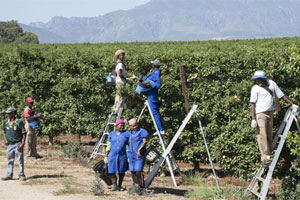
The Department of Trade and Industry is working on creating a dedicated agro-processing incentive scheme to attract investment in the sector. The department has said before that it will focus on the development and revitalisation of critical agro-processing infrastructure to stimulate growth in the industry.
In the eighth iteration of the Industrial Policy Action Plan, the department highlights agro-processing as one of the economy’s key labour-intensive sectors. The plan also outlines the design of sector-specific incentives for agro-processing and the rail components sector.
Revitalising the agricultural sector and agro-processing is also a priority in the government’s nine-point plan. In 2014, agro-processing contributed about R78bn to the country’s GDP and employed 362,000 people.
Trade and Industry Minister Rob Davies said on Tuesday at the Manufacturing Indaba in Cape Town his department was looking into agro-processing incentives to attract investment. “This sector is critical because of its labour intensity across the value chain and its high economic multipliers, especially with respect to exports,” he said.
“The incentive will contain strong conditions with respect to labour practices and empowerment. In this latter case, it is imperative that the Western Cape embraces the effort to ensure that economic activity and economic growth is inclusive,” Davies said.
The Western Cape, which produces just more than 50% of SA’s agricultural exports, sees agro-processing as crucial for its local economy.
In Project Khulisa, the provincial government’s economic growth strategy, the Western Cape has identified agro-processing as a key growth sector with the potential to add up to 100,000 jobs and generate billions of rands.
Davies said manufacturing and diversifying the economy were crucial if SA was to achieve its strategic objectives.
Western Cape economic opportunities MEC Alan Winde said the conference focused on agro-processing, and oil and gas, as these sectors had shown themselves to be drivers of manufacturing. “We have given ourselves a target of enabling 60,000 jobs in oil and gas at the Saldanha Bay Industrial Development Zone. We are also doing work on skills and energy, and for removing red tape that hampers the flow of business,” Winde said.
The Western Cape had set itself a target of producing 32,500 apprentices in the next three years to work in the energy space, he said.
Winde called on Indaba delegates to make use of the unit established in his office to remove red tape.
